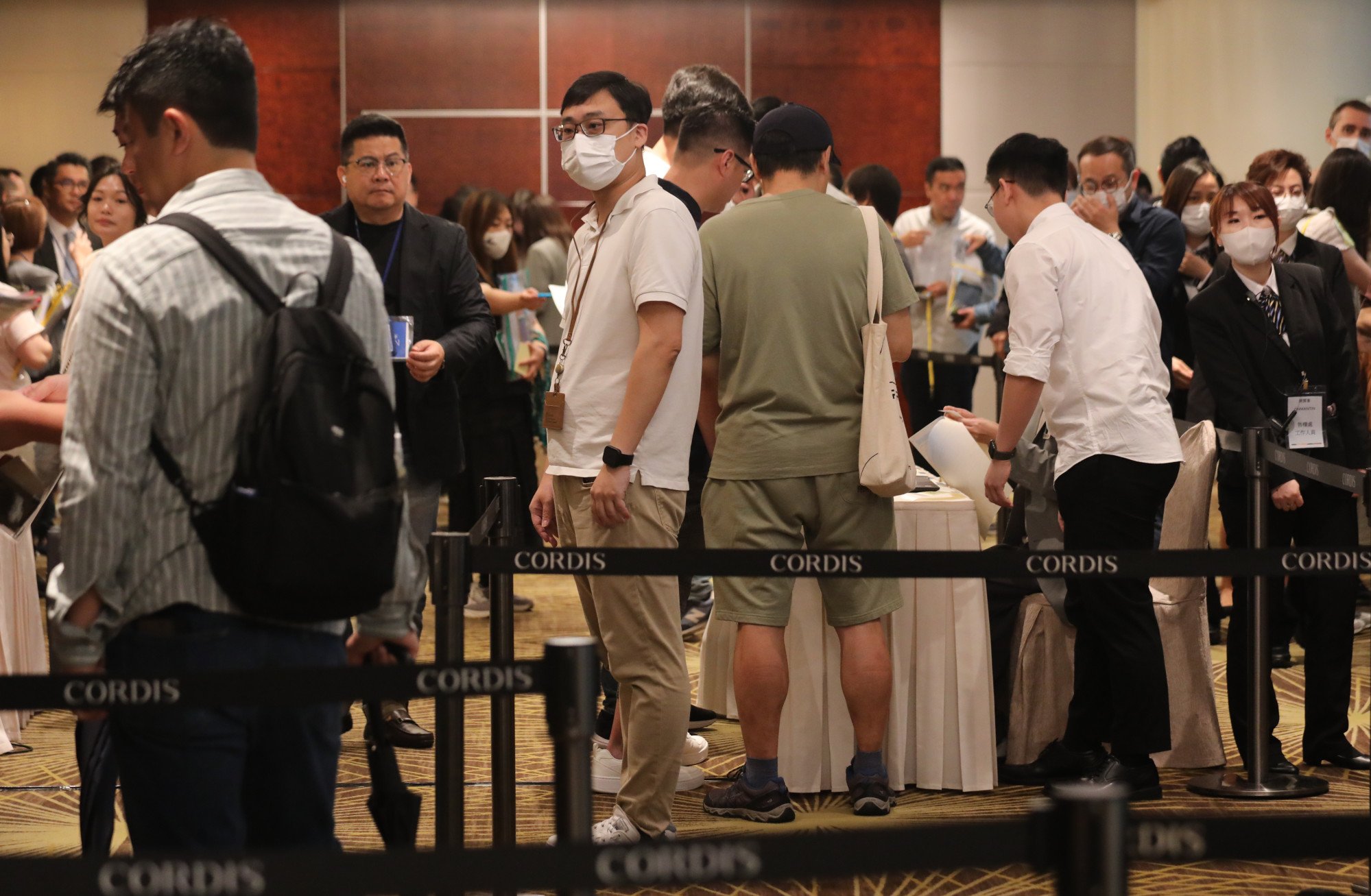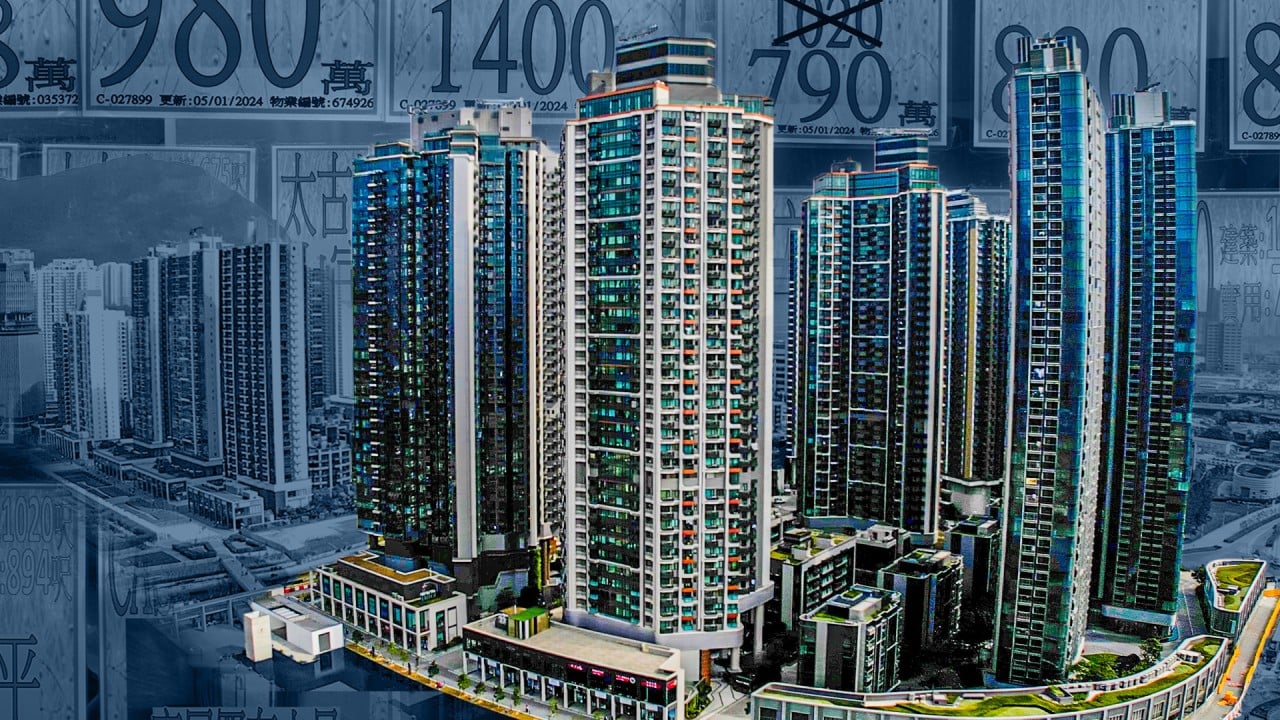
Number of Hong Kong mortgage holders with negative equity soars to 20-year high, most since Sars epidemic
- The number of Hongkongers with negative-equity loans stood at 32,073 in the first quarter, the most since some 40,000 cases were recorded in the first quarter of 2004
- Aggregate value of ‘upside down’ loans rises to HK$165.3 billion (US$21.1 billion), compared with HK$131.3 billion at the end of December.
Hong Kong’s declining home prices dragged more mortgage borrowers into negative equity, putting them under greater financial strain as property prices show little prospect of rising amid a lethargic housing market and high interest rates.
The aggregate value of negative-equity loans rose to HK$165.3 billion (US$21.1 billion), compared with HK$131.3 billion at the end of December.
“As property prices have fallen by more than 20 per cent from their peak, most homeowners who entered the market with a high loan-to-value ratio from 2019 to 2022 have a greater chance of falling into negative equity, resulting in an increase in the number of negative-equity cases,” said Eric Tso Tak-ming, chief vice-president of mReferral.
He added that although property prices rose slightly in March, there is a backlog of new home supplies and developers continue to sell new properties at low prices, which has kept second-hand property prices under pressure, making banks cautious in their valuations.
With property prices unlikely to rebound significantly in the short term, the number of negative equity cases is likely to fall only in the second half of the year, Tso said.
Hong Kong homebuyers snap up all flats at Great Eagle’s Onmantin project
Borrowing costs remain high as the city’s de facto central bank follows the US Federal Reserve’s monetary policy because of the currency peg. That prospect may stretch into September, after Fed chairman Jerome Powell struck a hawkish tone recently on US inflation, saying that it could take “longer than expected” to get inflation back on target.
The increase in the number of residential mortgage loans in negative equity in the first quarter was mainly due to a further decline of 2.8 per cent in the first two months of 2024 after residential property prices fell by 5.4 per cent in the fourth quarter of 2023, a spokesman for the HKMA said.
Even though residential property prices rebounded by more than 1 per cent in March, the latest negative equity number has not yet fully reflected the change in property prices in March, he added.

The HKMA also said the asset quality of the banking sector’s residential mortgage loans remains healthy, noting that the overall delinquency ratio at the end of March was only 0.09 per cent, and the delinquency ratio for negative equity cases stood at only 0.06 per cent
This shows that the vast majority of mortgage loan borrowers have been able to make their repayments on time, and that the risks related to the banks’ mortgage business is under control, the spokesman said.
Meanwhile, Sun Hung Kai Properties has priced 188 units at the Yoho Hub II residential project above Yuen Long MTR station about 30 per cent lower than the first phase.
The average price per square foot after discounts is HK$14,338, compared with HK$19,899 for the first batch of 206 units launched in December 2021.
The saleable area ranges from 467 sq ft for 71 two-bedroom units to 905 sq ft for 117 three-bedroom units. The prices range from HK$6.82 million to HK$12.99 million.


